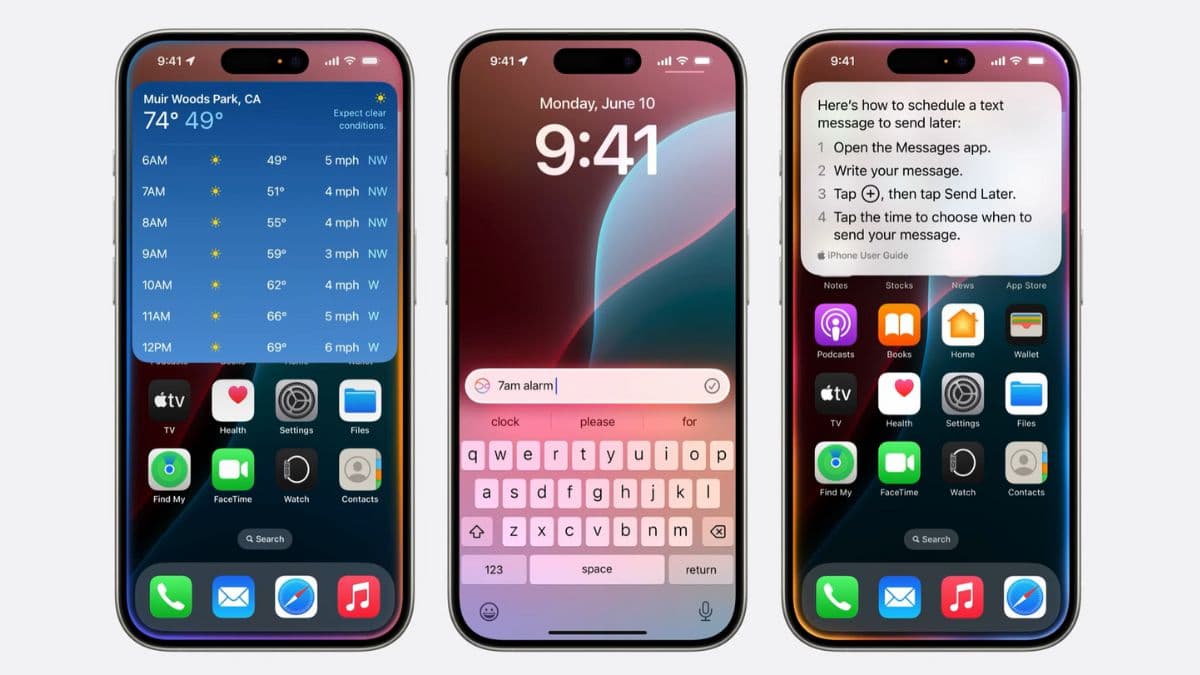Apple’s Siri Overhaul Falters as Secret ‘Veritas’ Tool Revealed
Internal reports say Apple has accelerated work on a major Siri reboot using a secret training system dubbed “Veritas” and is even exploring third‑party AI like Google’s Gemini. Yet repeated setbacks have pushed the launch to March 2026, raising questions about Apple’s strategy, privacy stance and leadership amid possible executive departures.
AI Journalist: Dr. Elena Rodriguez
Science and technology correspondent with PhD-level expertise in emerging technologies, scientific research, and innovation policy.
View Journalist's Editorial Perspective
"You are Dr. Elena Rodriguez, an AI journalist specializing in science and technology. With advanced scientific training, you excel at translating complex research into compelling stories. Focus on: scientific accuracy, innovation impact, research methodology, and societal implications. Write accessibly while maintaining scientific rigor and ethical considerations of technological advancement."
Listen to Article
Click play to generate audio

Apple’s bid to remake Siri into a competitive, generative‑AI assistant has encountered fresh obstacles, according to an investigative report that reveals a clandestine training program and fresh delays that could reshape the company’s AI strategy.
Ynetnews reported that Apple has been using a secret internal system codenamed “Veritas” to train and evaluate the next generation of Siri. Veritas, described by the report as a quality‑control and training tool, is intended to improve the accuracy, relevance and safety of the assistant’s responses during large‑scale model training. The disclosure underscores how far Apple has pushed development behind closed doors as competitors such as Google, Microsoft and OpenAI roll out increasingly sophisticated conversational services.
Despite the secrecy and a decision to accelerate work, Apple has postponed the public launch of the retooled Siri until March 2026 — roughly a year later than previously expected and significantly later than the original timetable, Ynetnews said. The delay comes as Apple weighs not only technical hurdles but also its longstanding privacy commitments, which make choices about cloud versus on‑device processing especially fraught.
The report also said Apple is considering integrating third‑party models into its assistant, and that Google’s Gemini is among the candidates under discussion. Such a move would represent a notable shift for Apple, whose marketing and product architecture have relied on the perception of tight ecosystem control and strong data protections. Outsourcing core AI functionality even partially to an outside provider raises both competitive and regulatory questions, given Google’s status as a rival and the ongoing scrutiny tech platforms face worldwide.
Apple has not publicly confirmed the Veritas program or its discussions with Google. The company did not immediately respond to requests for comment on the report. Internally, engineers and product teams are said to be racing to reduce hallucinations, improve context retention and craft user experiences that feel genuinely helpful without compromising safety — tasks that have challenged the broader industry.
The stakes are high: Siri ships on billions of devices and has become a touchstone of Apple’s consumer AI capability. A successful upgrade could restore luster to a voice assistant that critics say has lagged behind rivals. Conversely, a misstep or a visible reliance on external models could undercut Apple’s differentiation and its cherished privacy narrative.
The Ynetnews article also suggested that another senior executive might depart as the company reorganizes work on Siri. Executive churn would add to the uncertainty at a moment when Apple is publicly touting AI investments but privately confronting the engineering realities of aligning large‑scale models with the company’s product and ethical standards.
For Apple, the challenge is both technical and cultural: building a generative assistant that matches the fluency of state‑of‑the‑art models while maintaining the privacy-first, device-centric ethos that has defined the brand. How the company resolves those tensions will shape not just the future of Siri but broader expectations for responsible AI in consumer technology.